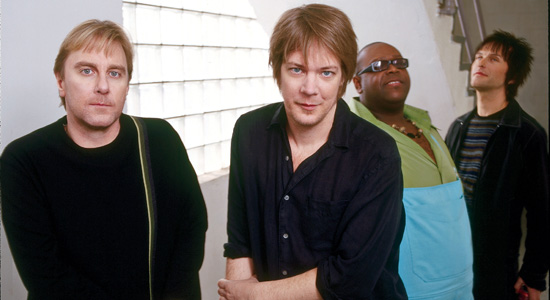As 2011 has come to an end, we are taking a look back at some of our favorite posts of the year by our guest editors.
 For post-punk scholars, Tommy Stinson will be forever fused to his infamous 12-year stint with Minneapolis garage-rock overachievers the Replacements. These days, the 45-year-old journeyman and doting dad is playing bass for Guns N’ Roses and Soul Asylum and has released his second solo album (and first in seven years), the well-crafted, bluesy and robust One Man Mutiny (Done To Death Music). Stinson will be guest editing magnetmagazine.com all week. Read our Q&A with him.
For post-punk scholars, Tommy Stinson will be forever fused to his infamous 12-year stint with Minneapolis garage-rock overachievers the Replacements. These days, the 45-year-old journeyman and doting dad is playing bass for Guns N’ Roses and Soul Asylum and has released his second solo album (and first in seven years), the well-crafted, bluesy and robust One Man Mutiny (Done To Death Music). Stinson will be guest editing magnetmagazine.com all week. Read our Q&A with him.

Stinson: When Soul Asylum’s founding bassist was suffering from cancer and his wife Marybeth told me that I was on the top of his list for his replacement in Soul Asylum should he pass away, it was truly overwhelming. When I was asked to do some shows, there was only one suitable answer. Now after a little more than six years, the answer is still yes. That is of course, when I’m available, as I am and have been committed on and off to Guns N’ Roses for the last 12 years.
Having gone to West High School in Minneapolis with Dave Pirner, played shows, gone to the same parties and basically done and gone through a lot of the same shit as Soul Asylum, it seemed like an easy fit. I have since surmised that the camaraderie we have both onstage and off is a total Minneapolis thing. There was a whole attitude and disposition about the bands from Minneapolis from the ’80s that is totally unique to Minneapolis. I think the ‘Mats, Hüsker Dü, Soul Asylum, as well as a few others, all had it. It was almost like some unspoken protective coating. On the one hand, we could be a bunch of smug outcasts that knew there was something going on but were actually scared about what that might be, while on the other hand trying to figure how we fit into it or not.
With most shows, you get a good amount of fun and games with your music. In contrast, GNR is a whole other beast altogether, as the production (which is quite substantial in size and spectacle) makes it more of a fast-paced balls-to-the-wall sort of event. My own shows are a lot more intimate. You can see, feel, smell and hear the people in front (or in back, in some cases). I prefer to have this open communication with the audience and to include them in the show whenever I can. When I was in the Replacements, we were always trying to include the audience—even getting the audience to play for us if necessary. It just makes it more fun I guess.
Video after the jump.






